GATE Production Engineering Syllabus 2025 comprises seven sections from which Manufacturing Processes, Quality and Reliability, Industrial Engineering and General Engineering. It is important for students to go through the complete syllabus.
Table of Contents
GATE Production and Industrial Engineering Syllabus 2025 includes a total of seven sections namely Engineering Mathematics, General Engineering, Manufacturing Processes I, Manufacturing Processes II, Quality and Reliability, Industrial Engineering, Operations Research and Operations Management. GATE aspirants are required to go through the entire updated syllabus and prepare accordingly to secure a good GATE score.
The GATE entrance examination for the year 2025 will be conducted by IIT Roorkee for candidates who want to pursue their post-graduation in an engineering course or get recruited by Public Sector Undertakings (PSUs). The GATE 2025 exam is scheduled to be conducted from Feb 01, 02, 15 and 16, 2025.
GATE Production and Industrial Engineering Syllabus 2025
The following are the broad topics of sections in the production engineering GATE syllabus 2025, mentioned in the serial order below.
- Engineering Mathematics
- General Engineering
- Manufacturing Processes I
- Manufacturing Processes II
- Quality and Reliability
- Industrial Engineering
- Operations research and Operations management
Also Check: GATE Marks vs Rank
1. Engineering Mathematics Syllabus
The subject of Engineering Mathematics consists of mathematical methods and techniques that are predominantly used in engineering. The following are the various topics included in the GATE PI syllabus in this section.
Linear Algebra
- Matrix algebra
- Systems of linear equations
- Eigenvalues and eigenvectors
Calculus
- Functions of single variable
- Limit, continuity and differentiability
- Mean value theorems
- Evaluation of definite and improper integrals
- Partial derivatives
- Total derivative
- Maxima and minima
- Gradient
- Divergence and Curl
- Vector identities
- Directional derivatives
- Line
- Surface and Volume integrals
- Stokes
- Gauss and Green’s theorems
Also Check: GATE Score Calculator 2025
Differential equations
- First order equations (linear and nonlinear)
- Higher order linear differential equations with constant coefficients
- Cauchy’s and Euler’s equations
- Initial and boundary value problems
- Laplace transforms
- Solutions of one dimensional heat
- Wave equations
- Laplace equation.
Complex variables
- Analytic functions
- Cauchy’s integral theorem
- Taylor series
Also Check: GATE Qualifying Marks 2025
Probability and Statistics
- Definitions of probability and sampling theorems
- Conditional probability
- Mean
- Median
- Mode
- Standard deviation
- Random variables
- Poisson
- Normal and Binomial distributions.
Numerical Methods
- Numerical solutions of linear and non-linear algebraic equations Integration by trapezoidal and Simpson’s rule
- Single and multi-step methods for differential equations.
Also Check: GATE Negative Marking 2025
2. General Engineering Syllabus
General engineering consists of subjects that include Engineering materials, Mechanics and others. The following are the topics to be covered in this section.
Engineering Materials
- Structure and properties correlation
- Engineering materials (metals, ceramics, polymers and composites) – properties and applications
- Stress-strain behaviour of metals and alloys
- Iron-carbon phase diagram
- Heat treatment of metals and alloys, its influence on mechanical properties.
Applied Mechanics
- Engineering mechanics – equivalent force systems, free body concepts, equations of equilibrium
- Trusses
- Strength of materials – stress, strain and their relationship
- Failure theories, Mohr’s circle(stress)
- Deflection of beams
- Bending and shear stress
- Euler’s theory of columns.
Also Check: GATE Syllabus for Engineering Science
Theory of Machines and Design
- Analysis of planar mechanisms, cams and followers
- Governors and fly wheels
- Design of bolted, riveted and welded joints
- Interference/shrink fit joints
- Design of shafts, keys, spur gears, belt drives, brakes and clutches
- Pressure vessels.
Thermal and Fluids Engineering
- Fluid mechanics – fluid statics
- Bernoulli’s equation, flow through pipes
- Equations of continuity and momentum
- Capillary action, contact angle and wetting
- Thermodynamics – Zeroth, First and second law of thermodynamics
- Thermodynamic system and processes
- Calculation of work and heat for systems and control volumes
- Air standard cycles
- Heat transfer – basic applications of conduction
- Convection and radiation.
Also Check: GATE Syllabus for Mining Engineering
3. Manufacturing Processes I Syllabus
This is an important section that has some of the technical topics to be learned for the GATE Production and Industrial Engineering Syllabus.
Casting
- Types of casting processes and applications patterns – types and materials
- Allowances
- Moulds and cores – Materials, Making, Testing, Casting
- Techniques of cast iron, steels and nonferrous metals and alloys
- Analysis of solidification and microstructure development
- Design of gating and riser
- Origin of defects.
Also Check: GATE Syllabus for Civil Engineering
Metal Forming
- Stress-strain relations in elastic and plastic deformation
- Concept of flow stress
- Hot and cold working – Forging, Rolling, Extrusion, Wire drawing
- Sheet metal working processes – Blanking, Bending, Deep drawing
- Ideal work and slab analysis
- Origin of metalworking defects.
Also Check: GATE Syllabus for Mechanical Engineering
Joining of materials
- Principles of fusion welding processes (manual metal arc, MIG, TIG, plasma arc, submerged arc welding processes)
- Different heat sources (flame, arc, resistive, laser, electron beam), and heat transfer and associated losses, flux application, feeding of filler rod
- Principles of solid state welding processes (friction, explosive welding, ultrasonic welding processes)
- Principles of adhesive, brazing and soldering processes
- Origins of welding defects.
Powder processing
- Production of metal/ceramic powders
- Compaction
- Sintering of metals and ceramic powders
Also Check: GATE Syllabus for Production Engineering
Polymers and Composites
- Plastic processing – Injection, Compression, Blow molding, Extrusion, Calendaring, Thermoforming
- Molding of composites.
4. Manufacturing Processes II Syllabus
This is the second part of the Manufacturing Process Subject, and further topics related to Manufacturing are covered in this section of Production and Industrial Engineering
Machine Tools and Machining
- Basic machine tools like - Centre lathe, Milling machine, Drilling machine, Construction and kinematics
- Machining processes - turning, Taper turning, Thread cutting, Drilling, Boring, Milling, Gear cutting, Thread production, Grinding
- Geometry of single point cutting tools - Chip formation, Cutting forces, Specific cutting energy and power requirements
- Merchant’s analysis
- Basis of selection of machining parameters
- Tool materials
- Tool wear and tool life
- Economics of machining
- Thermal aspects of machining
- Cutting fluids
- Machinability
- Jigs and fixtures - Principles of Applications, Design
Also Check: GATE Syllabus for Petroleum Engineering
Non-traditional Manufacturing
- Principles, applications, effect of process parameters on MRR and product quality of non-traditional machining processes
Computer Integrated Manufacturing
- Basic concepts of CAD – geometric modelling
- CAM
- CNC and robotics Configurations
- Drives and controls
- Group Technology and its applications
- CAPP
- Cellular manufacturing
- FMS.
Also Check: GATE Syllabus for Engineering Mathematics
5. Quality and Reliability Syllabus
This section of the GATE Production And Industrial Engineering revolves around topics of Quality which Includes some Important concepts like Total Quality Management (TQM), Maintenance etc. Refer to the table below for In-detail information of the topics and sub-topics.
Metrology and Inspection
- Limits, fits, and tolerances, gauge design, interchangeability, selective assembly;
- Linear, angular, and form measurements(straightness, squareness, flatness, roundness, and cylindricity) by mechanical and optical methods
- Inspection of screw threads and gears
- Surface finish measurement by contact and non-contact methods
- Tolerance analysis in manufacturing and assembly
Also Check: GATE Syllabus for Agricultural Engineering
Quality management
- Quality - concept and costs
- Quality Assurance
- Statistical Quality Control
- Acceptance sampling
- Zero defects
- Six sigma
- Total Quality Management
- ISO 9000
Reliability and Maintenance
- Reliability, availability and maintainability
- Distribution of failure and repair times
- Determination of MTBF and MTTR
- Reliability models
- Determination of system reliability
- Preventive maintenance and replacement
Also Check: GATE Chemistry Syllabus
6. Industrial Engineering Syllabus
The Industrial Engineering section is concerned with topics of Product Design and development, Work system design and Facility design. The various sub-topics involved are given in the table below.
Product Design and Development
- Principles of good product design, tolerance design; quality and cost considerations
- Product life cycle - Standardization, Simplification, Diversification, Value engineering and analysis
- Concurrent engineering
- Comparison of production alternatives.
Also Check: GATE Syllabus for Humanities and Social Science
Work System Design
- Taylor’s scientific management
- Gilbreth’s contributions
- Productivity – concepts and measurements
- Method study, micro-motion study
- Principles of motion economy
- Work measurement - Time study, Work sampling, Standard data, PMTS
- Ergonomics
- Job evaluation, merit rating, incentive schemes, and wage administration.
Also Check: GATE Syllabus for Biomedical Engineering
Facility Design
- Facility location factors and evaluation of alternate locations
- Types of plant layout and their evaluation
- Computer-aided layout design techniques
- Assembly line balancing
- Materials handling systems.
Also Check: GATE Syllabus for Environmental Science and Engineering
7. Operations research and Operations Management Syllabus
Operation research revolves around the use of scientific methods, techniques and tools for solving problems involved in the operations of a system. Operations Management is an area of management that is concerned with processes of production and best business practises. The following are the various topics and sub-topics in this section.
Operation Research
- Linear programming - Problem formulation, Simplex method, Duality, Sensitivity analysis
- Transportation and assignment models
- Network flow models
- Constrained optimization and Lagrange multipliers
- Markovian queuing models
- Dynamic programming
- Simulation
- Manufacturing applications
Also Check: GATE Syllabus for Textile Engineering and Fibre Science
Engineering Economy and Costing
- Elementary cost accounting and methods of depreciation
- Break-even analysis
- Techniques for evaluation of capital investments
- Financial statements
- Time-cost trade-off
- Resource leveling
Production control
- Forecasting techniques - Causal and time series models, Moving average, Exponential smoothing, Trend and seasonality
- Aggregate production planning
- Master production scheduling
- MRP and MRP-II
- Routing, scheduling and priority dispatching
- Push and pull production systems
- Concept of JIT manufacturing system
- Logistics, distribution, and supply chain management
- Inventory – Functions, Costs, Classification
- Deterministic inventory models
- Quantity discount
- Perpetual and periodic inventory control systems
Project management
- PERT and CPM
Also Check: GATE Syllabus for Data Science and AI
GATE Production and Industrial Engineering Exam Pattern
The GATE PI paper will consist of three sections - General Aptitude, Engineering Mathematics and Questions from the Production and Industrial Engineering Subjects.
General Aptitude will consist of questions for 15 Marks, Remaining questions for 85 Marks will be from the Production and Industrial Engineering + Engineering Mathematics subject, bringing the total marks for the paper to 100.
From the General Aptitude Section number of questions will be 10. The remaining 55 questions will be asked from Production and Industrial Engineering & Engineering Mathematics subjects. The paper consists of questions for one mark and two marks. The total number of questions in the paper is 65 and the time given for the paper is 180 Minutes.
Also Check: GATE Exam Attempt Limit 2025
GATE PI Marking Scheme 2025
The following table explains the GATE PI marking scheme in further detail:
| Section | Number of Questions | Total Marks | Marks Distribution |
| General Aptitude (GA) | 10 | 15 | 5 MCQs for 1 mark each 5 MCQs for 2 marks each |
| Engineering Mathematics | 55 | 13 | 25 Questions for 1 mark each 30 Questions for 2 marks each |
Also Check: What is Good Score in GATE?
GATE Production and Industrial Engineering Reference Books
Along with GATE preparation books, students should refer to specified reference books for the GATE Production Engineering Syllabus preparation:
| Name of Book | Author/ Publisher |
|---|---|
| Advanced Engineering Mathematics | RK Jain, SRK Iyengar |
| Advanced Engineering Mathematics | HK Dass |
| Engineering Mathematics solved papers | Made easy publications |
| Higher Engineering Mathematics | B.S. Grewal |
| GATE Guide Production & Industrial Engineering 2021 | G. K. Publications |
| A Text Book Of Production Engineering | P. C. Sharma |
| Production Technology: Manufacturing Processes, Technology, and Automation | R. K. Jain |
| Fundamentals of Metal Casting | P C Mukherjee |
| Welding and Welding Technology | Richad L Little |
| Theory of Machines | R S Krurmi |
| Theory of Machines | S S Rattan |
| Machine Design | Alferd Hall |
| Industrial Engineering and Management | O P Khanna |
| Industrial Organisation and Production Management | Martand Telsang |
| A Textbook on Fluid Mechanics | R K Bansal |
Also Check: Opportunities After GATE Exam

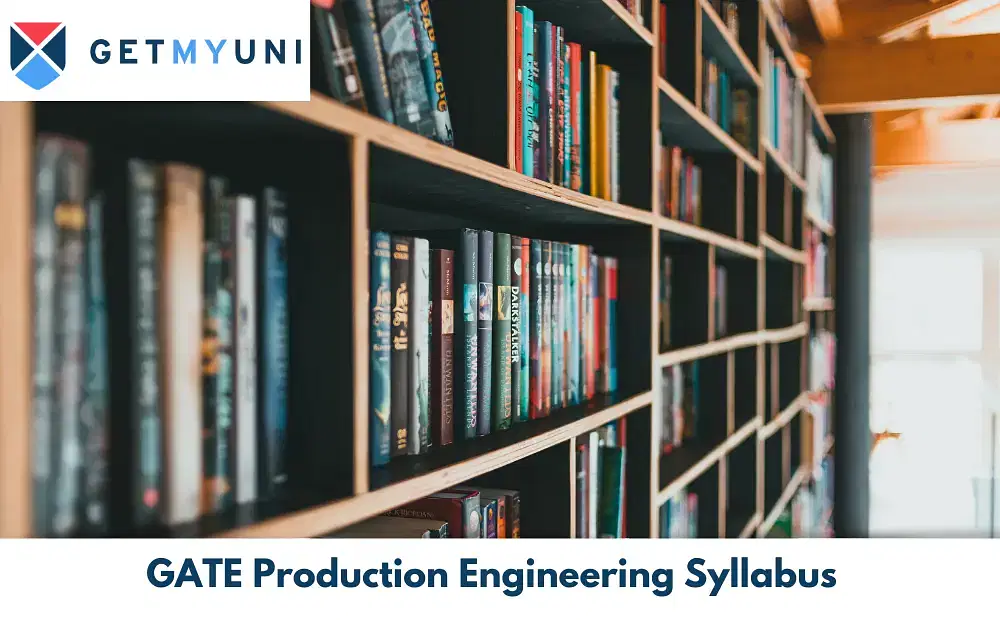


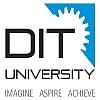
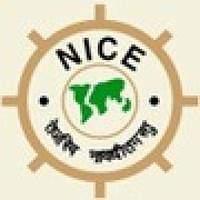


![Indian Institute of Technology, [IIT] Bombay](https://media.getmyuni.com/azure/college-image/small/indian-institute-of-technology-iit-bombay.jpg)

![Indian Institute of Technology, [IIT] Kanpur](https://media.getmyuni.com/azure/college-image/small/indian-institute-of-technology-iit-kanpur.jpg)
![Indian Institute of Technology, [IIT] Kharagpur](https://media.getmyuni.com/azure/college-image/small/indian-institute-of-technology-iit-kharagpur.jpg)

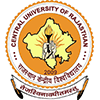
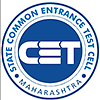

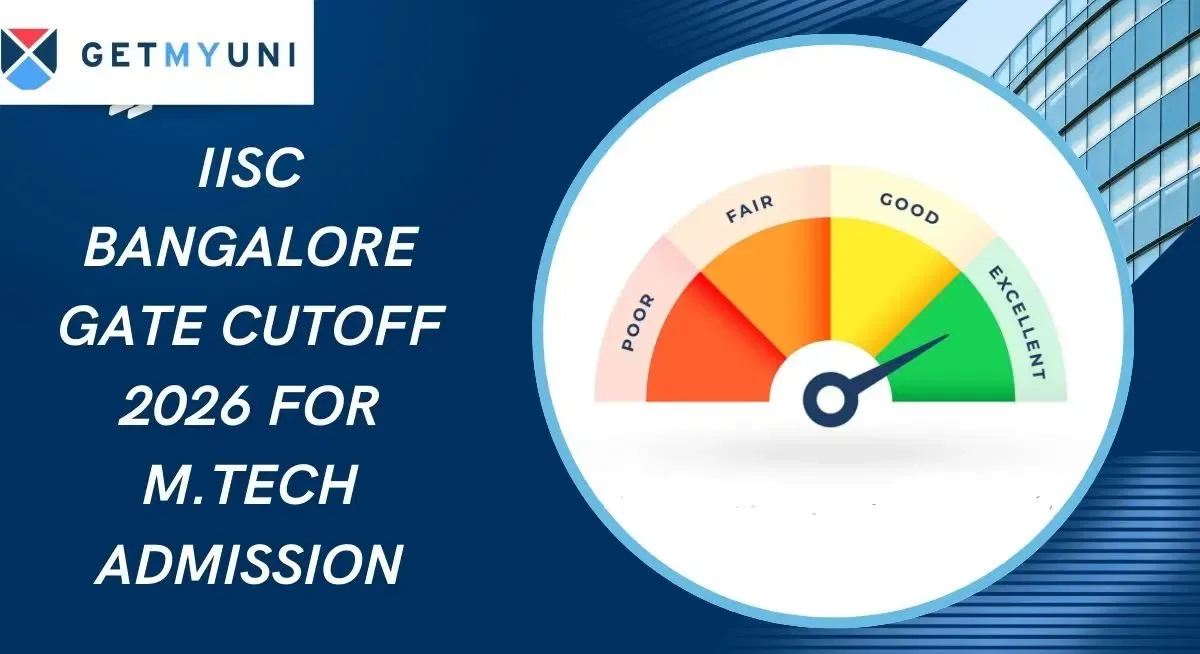
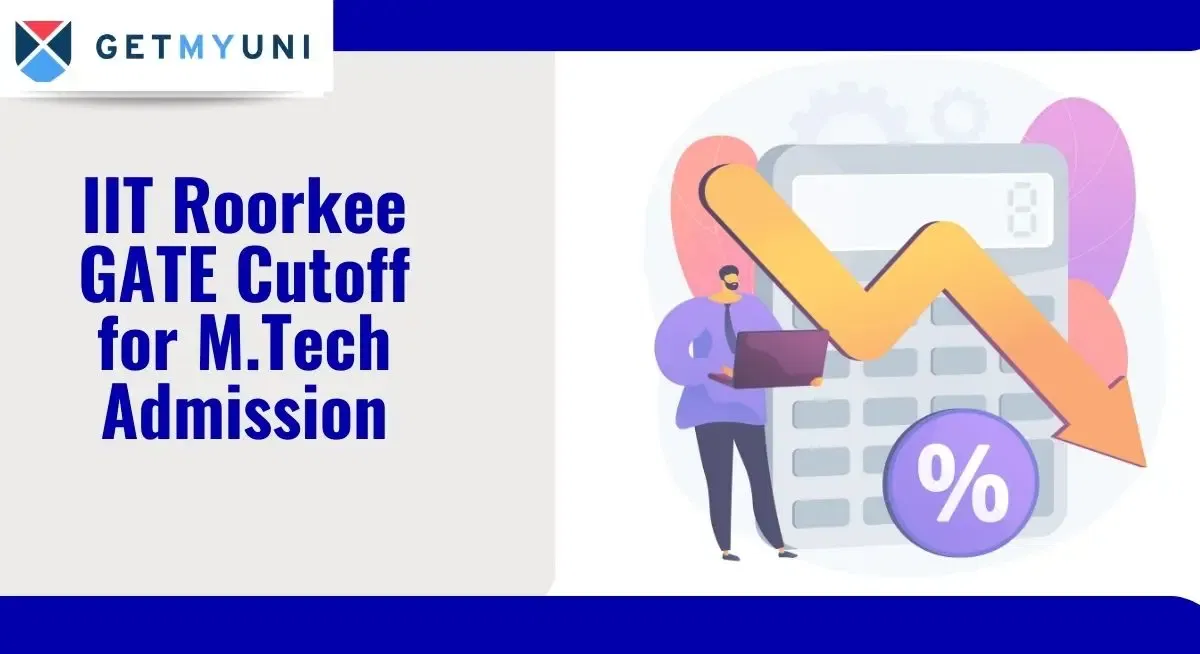
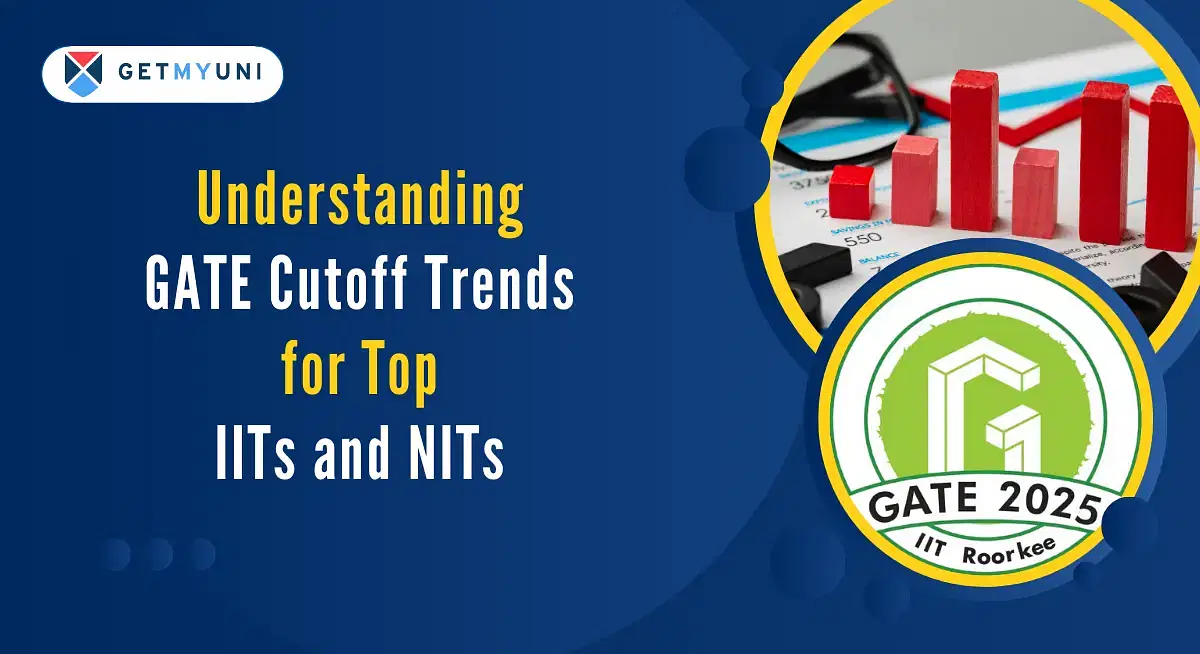
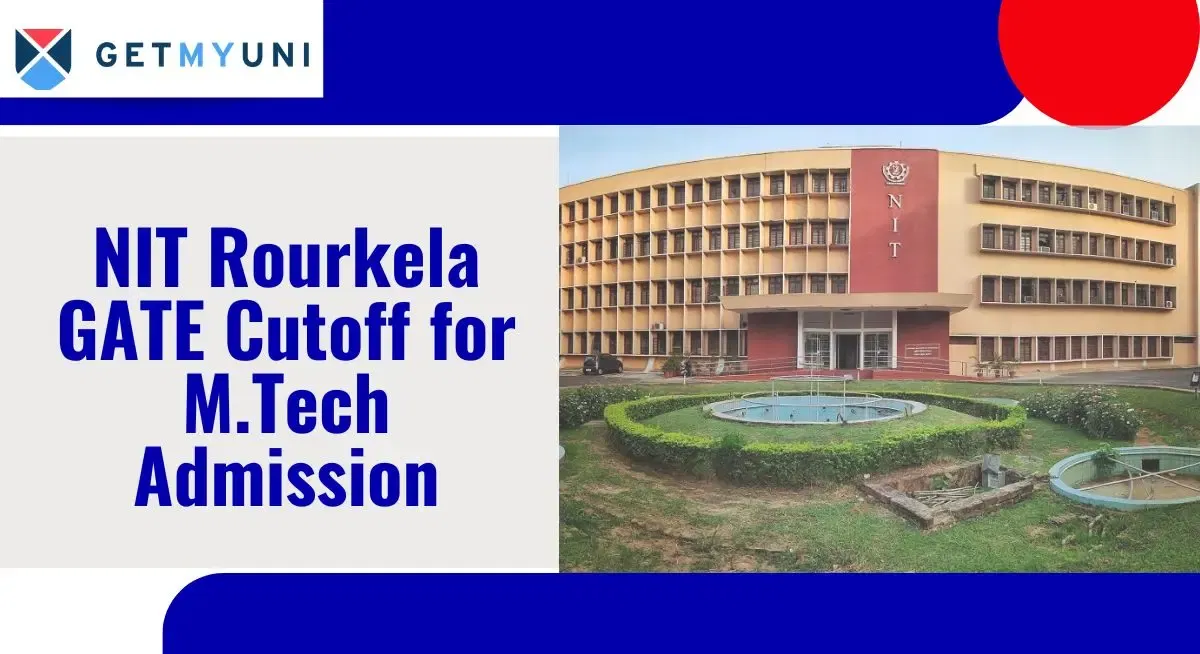
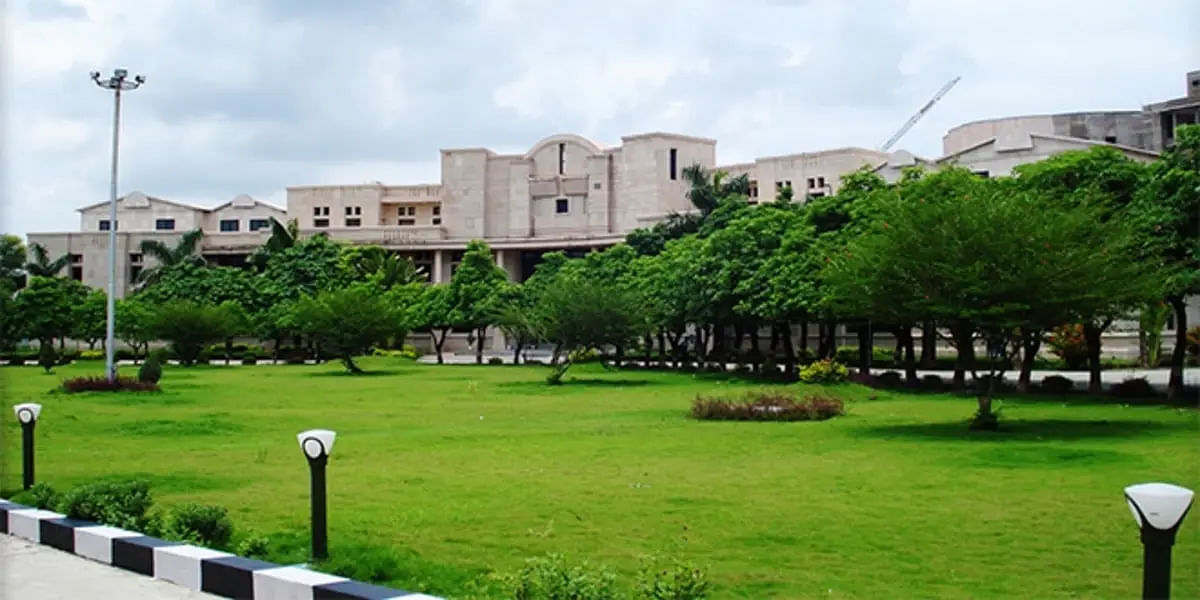
















POST YOUR COMMENT